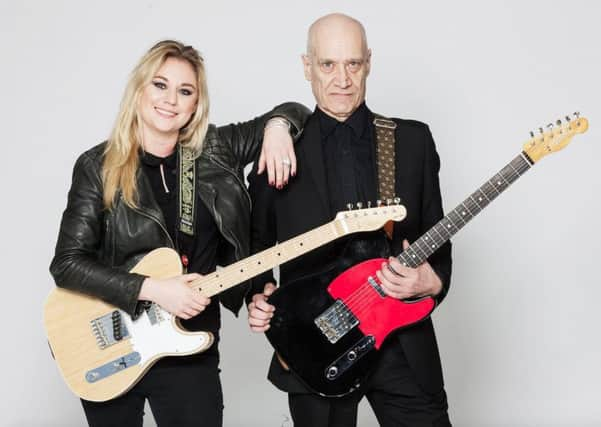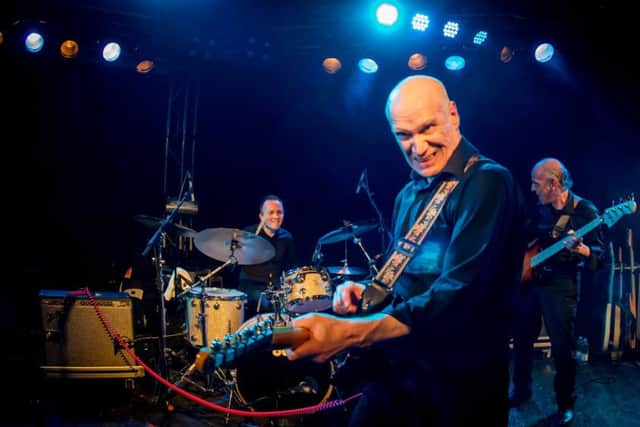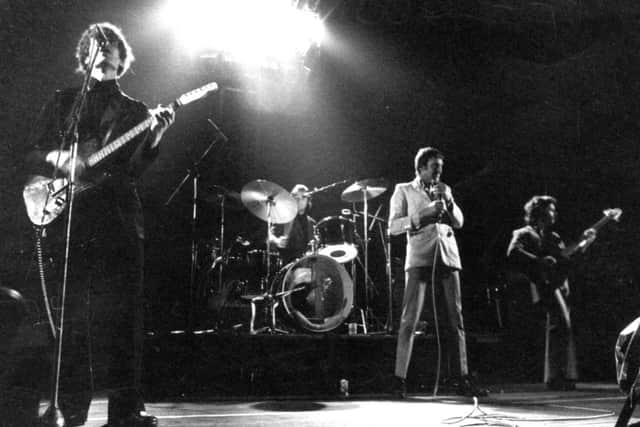How Wilko Johnson's '˜terminal' cancer changed his life for the better


Wilko Johnson is not the only artist to embark on a farewell tour only to discover that adieu really just means au revoir – but he had more cause than most to believe that he would not be back. In January 2013, the former Dr Feelgood guitarist and Game Of Thrones star was diagnosed with late stage pancreatic cancer. Without treatment, he was given ten months to live. Johnson had watched first his bandmate Lee Brilleaux, and then his wife Irene succumb to the disease, and had no appetite for the fight. He chose not to undergo chemotherapy.
“It’s a battle you can’t win,” he says. “I thought, ‘I’ve just got a short time to live, I’m not going to spend any of that time running around looking for miracle cures’. So I absolutely accepted the idea that my life was at an end and I could keep my sense of balance like that.”
Advertisement
Hide AdAdvertisement
Hide AdJohnson decided to go out on tour one last time, and spend his remaining months doing what he does best – he is one of the UK’s best loved guitarists, lauded for his choppy playing style which encompasses both lead and rhythm parts, as well as his fidgety stage presence. And then there’s his idiosyncratic philosophical outlook on life, captured beautifully in Julien Temple’s Dr Feelgood documentary Oil City Confidential.


Affection for this punk precursor only increased when he took on the role of mute executioner Ilyn Payne in Game of Thrones, so there were emotional scenes at home and abroad when Johnson headed out with former Blockheads bassist Norman Watt-Roy and drummer Dylan Howe for a final hurrah.
“It was quite an experience to be playing with the knowledge that any gig you were doing could actually be your last one – it gave an extra edge to proceedings,” he says. “But then of course, things went on and I didn’t die on schedule.”
Johnson displayed very little in the way of the symptoms he was told to expect, but his tumour became so obvious that he struggled to cover it with his guitar. “When I was playing, my guitar would actually rock back and forwards on the tumour, so it made its presence felt, just not with illness,” he says.
As well as embarking on a farewell tour, Johnson also recorded what he presumed would be his last ever album, Going Back Home, with Who frontman Roger Daltrey, which has become one of the most successful releases of his career.


“I was a month into ‘extra time’ when we were doing it,” he quips, “so I was thinking that I would never see the record released, but I can’t complain cos I’ve had quite a good life and I thought making a record with Roger Daltrey was a pretty good way to end it.
“It was a marvellous year for me,” he says, almost misty-eyed with nostalgia for the days when death was just around the corner. “It really does teach you what’s important and what is not, when you know your life is at an end. The kind of trivia that normally engages your mind, you’re getting uptight about this, that and the other, all of that is swept away. It’s hard to describe. It was a kind of elation, generally feeling high because... I don’t know. It’s hard for me now to remember. It was like a dream that fades and you can never grasp it again.”
Advertisement
Hide AdAdvertisement
Hide AdBecause there was a twist in this wild tale, one “you wouldn’t put in a soap opera”, according to Johnson.
While he was gigging with Daltrey, a doctor in the crowd was struck by Johnson’s vigour for a man on supposedly borrowed time. He contacted Johnson and recommended a second opinion from an oncology specialist. That opinion was that Johnson’s tumour was operable and that he had more chance of dying in the operating theatre than he did of being killed by his tumour.


“A doctor says ‘you’ve got cancer’. It takes about one second to say and the universe changes irrevocably,” says Johnson. “And then out the other end, this massive operation they did on me and a year recuperating, lying in bed feeling really ill for a long time. You’re coping with a different set of circumstances.”
It transpires that dying was much easier – and certainly a lot more liberating – for Wilko Johnson than living. “I’m a miserable so-and-so and after the operation and those months of recovering, I started realising that I must be getting better because my old miserable self was coming back.”
Johnson’s extraordinary physical, psychological and philosophical journey has been recorded in another Julien Temple film, the lyrical Ecstasy of Wilko Johnson. Temple naturally thought he was documenting his friend’s final months but what started out as a requiem became an oddly non-celebratory reprieve. When asked at a post-screening Q&A if he preferred “living Wilko” or “dying Wilko”, Temple had to admit that dying Wilko was better company.
“I’m coming back down to earth now from all that weirdness,” reckons Johnson, 18 months on from announcing that he is cancer-free. “Everything is settling. I think it’s made me more tolerable. I don’t go slamming front doors anymore.”


Johnson has also recorded his remarkable experience in a new memoir. Don’t You Leave Me Here started out as an account of his year of living deathlessly but has ended up as more of a rock’n’roll autobiography, charting his childhood and adolescence in Canvey Island, that unique industrial outpost at the mouth of the River Thames, and telling tales from the mid-Seventies pub rock scene which paved the way for punk.
Advertisement
Hide AdAdvertisement
Hide AdJohnson has never really stopped playing in all those years. When he was cast out of Dr Feelgood in the late Seventies, he joined the Blockheads and formed his own Wilko Johnson Band. Now he is heading out on tour again, where he feels comfortable. He has also started writing songs again but admits to attacks of laziness and bouts of procrastination, now that the Grim Reaper is no longer looming. Clearly, he responds well to a deadline. “Well, I think that’s true for everyone really.”
• Wilko Johnson plays the ABC, Glasgow on 14 April. Don’t You Leave Me Here is published by Little, Brown on 26 May